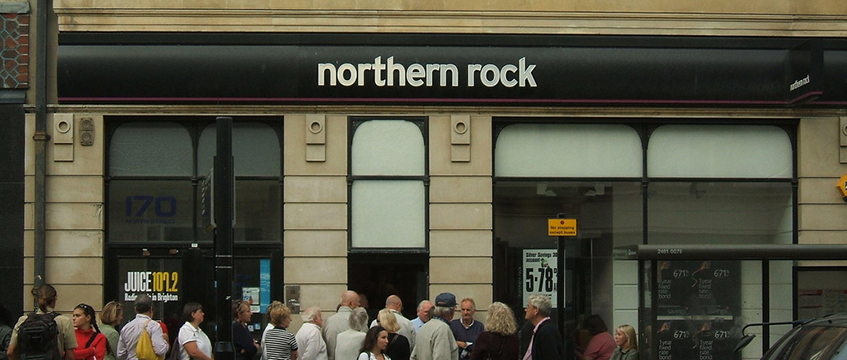There’s nothing like a significant anniversary to prove how hindsight is indeed a wonderful thing.
In a parallel universe where the financial crisis hadn’t happened – I know; but do indulge me for a moment – 1 October would have seen us celebrate 20 years since Northern Rock listed on the London Stock Exchange.
Instead, this week marks a decade since it was forced to go cap in hand to the Bank of England for a bail out following the first run on a UK bank in 141 years. Over a few short days in September 2007, £4.6bn was withdrawn.
This was a former building society, remember, which had grown to become the fifth largest mortgage lender in the UK. And one, according to the EG archive, which just months earlier had been growing its footprint.
“Northern Rock is in the process of expanding its branch network,” we wrote that January. “It currently has 80 branches and plans to grow to 100 over the next three to four years.”
If today the public is untrusting in business, and by extension real estate, a large part of the blame can be laid at Northern Rock’s door.
At its peak, the taxpayer underwrote up to £51bn of the company’s liabilities, according to a Commons committee report published two years after its demise. Throughout the period of emergency support the company agreed, among other measures, to reduce mortgage lending, yet it continued to write loans of up to 125% of a property’s value.
But there’s no point looking back if we don’t look forwards.
It was a point well made by Richard Croft at an EG event this week. The chief executive and co-founder of M7 Real Estate may be riding the crest of a wave ahead of the company’s expected IPO next month, but he still bears the scars caused by the crash.
Croft told a rapt audience at our Not Just Another Property Event how his sobering experience of running Halverton at the time – with brutal frankness, he acknowledged a string of bad decisions – continues to inform the choices he makes today.
Croft wrote in EG last year of the “three signs (which I missed) that heralded Armageddon”. And he warned that there is always the danger of history repeating itself. Talk of a “new normal” or “new paradigm” terrifies him: “But people like it and I am now hearing it again. History should have taught us that there is no such thing.” A second was “banks were lending at rates they shouldn’t”. And third: “the real bell-ringer, was deals being done which leave you mystified about how they made money – which they didn’t”.
The market has cooled since then but the risks remain.
But here perhaps is a sign that many in the market are alive to them. In May this year we ran an article headlined: “Next recession 2019, next big one 2026”. The piece covered research which showed that, since 1800, recognisable recessions have occurred every 18 years in the UK and US. With property at the forefront, this time around would be no different, it concluded.
We noticed a spike in views of the article last week. A sign, hopefully, that using the experiences of the past to inform the decisions of the future is being widely practiced.
There really is no excuse to be anything less than vigilant.
To send feedback, e-mail damian.wild@egi.co.uk or tweet @DamianWild or @estatesgazette











